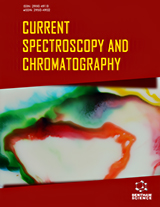Abstract
Propolis – in the form of alcoholic extract – is one of the most produced and commercialized bee products in the world due to its many pharmacological properties hence several chemical compositions which vary according to their producing regions, botanical source, type of bee, climate amongst other factors are there. In this manner, this study has the objective of finding a relation among the Brazilian commercial propolis extracts to each of their respective producing regions by applying a supervised classification method as the partial least squares discriminant analysis (PLS-DA). Thusly, it was possible to discriminate between the samples from the South and Southeast regions of the country with 100% accuracy in the prediction of new samples from both regions studied. In this sense, the proposed methodology can be used to perform a rapid distinction between geographical origins of the propolis extracts due to its fast capability to do so, as well as, its low cost, in order to attain a superior quality control of these products.
Keywords: Brazilian propolis, commercial extracts of propolis, partial least squares discriminant analysis, principal component analysis, quality control, UV-VIS spectroscopy.
Graphical Abstract




























